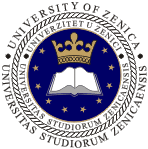KNOWLEDGE OF THE INTERNATIONAL CODE OF ETHICS FOR PROFESSIONAL ACCOUNTANTS AND READINESS TO PROCEED ACCORDING TO THE GUIDELINES OF THE CODE
This paper aimed to examine whether the level of knowledge of the International Code of Ethics for Professional Accountants influences the readiness of accountants to act in accordance with its guidelines, even under pressure that can adversely affect their professional status. The survey was conducted among medium and large companies in the Federa...
By Maja Letica, Mirela Mabić, Nikola Škobić
ANALYSIS OF ACTUARIAL PRICING STUDIES THROUGH BIBLIOMETRIC ANALYSIS
Actuarial pricing is a critical area underlying risk assessment and premium calculation processes in the insurance and finance sectors. It involves the application of mathematical and statistical models to determine the cost of insurance policies and predict potential future losses. Insurance companies place significant importance on actuarial pric...
By Seher Tezergil
THE IMPACT OF ECONOMIC OPENNESS ON THE ECONOMIC GROWTH OF BOSNIA AND HERZEGOVINA
This paper presents a study of the impact of economic openness (imports, exportsand foreign direct investment) on the economic growth of Bosnia and Herzegovina (B&H) inthe period from 2005 to 2024. The paper applied multiple regression and OLS estimation.The research results indicate that the observed independent variables have a significan...
By Haris Omerika, Alem Merdić
MACHINE LEARNING FOR STRATEGIC AND OPERATIONAL DECISION-MAKING: A BIBLIOMETRIC PERSPECTIVE
Besides being a buzzword, machine learning finds new areas of application in organizational decision-making processes by the day. We map the field's intellectual structure, thematic evolution, and application domains through a bibliometric analysis of 1,803 Web of Science and Scopus articles (1990-2024) to elucidate its strategic and operational ro...
By Filip Peovski, Bojan Kitanovikj, Ivona Serafimovska
QUALITY OF WEBSITES OF PUBLIC INSTITUTIONS IN BOSNIA AND HERZEGOVINA: CHALLENGES AND RECOMMENDATIONS FOR INCLUSIVE DIGITAL GOVERNANCE
This paper explores the digital maturity of public institutions in Bosnia and Herzegovina at all levels of government (state, entity, Brčko District, cantonal and municipal) through a comparative assessment of the technical quality, functionality and quality of the content of their official websites. The research covers five sets of criteria: techn...
By Faruk Unkić
TELEWORKING AND ITS RELATIONSHIP WITH ORGANIZATIONAL COMMITMENT: AN ANALYTICAL REVIEW
With the advancement of technology and the emergence of new challenges in the work environment, teleworking has become increasingly prevalent in recent years. This paper examines its impact on employees' organizational commitment – that is, whether and how physical distance from the workplace affects their sense of belonging, motivation, and ...
By Mimoza Kasa-Jashari, Aleksandra Janeska-Iliev
IMPACT OF IMPLEMENTATION OF BASEL III STANDARDS ON CAPITAL AND RISK MANAGEMENT OF BANKS IN THE FEDERATION OF BOSNIA AND HERZEGOVINA
A healthy and stable financial system is very important for the development and growth of a country, and its key role is to provide conditions that will enable the unhindered flow of financial resources. Given that the stability of the banking system represents, both nationally and internationally, a matter of general public interest, banks in all ...
By Enela Horozović, Lejla Demirović, Ševala Isaković-Kaplan
THE INFLUENCE OF THE COMPANY'S CORPORATE SOCIAL RESPONSIBILITY AND BUSINESS ETHICS ON THE CONSUMERS’ ATTITUDE AND LOVE TOWARDS THE BRAND
This study investigates the direct effect of the perception of social responsibility and business ethics on love and attitude towards a drug brand that can be obtained without a prescription, within Bosnia and Herzegovina. The data was collected through an online survey. In order to validate the suggested conceptual model, we used structural equati...
By Adi Alić, Arijana Dedić
GOING CONCERN – KEY AUDITOR CONSIDERATIONS
The principle going concern is a fundamental assumption in the preparation and presentation of financial statements. It is a sensitive assessment in audit arrangement that, in the case of an auditor's mistake, can leave multiple negative consequences for the business of the audited entity and its stakeholders, but also for entire accounting profess...
By Bruno Bošnjak, Ševala Isaković-Kaplan, Lejla Demirović
It is well known that the economic growth of the country is a complex phenomenon and that it is influenced by a large number of different factors. The intensity of the influence of each factor is important, as well as their mutual relationship. Almost every decision concerning economic growth is long-term, that is, it has long-term effects on the c...
By Amra Babajić, Mirza Suljić




